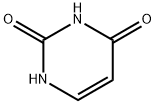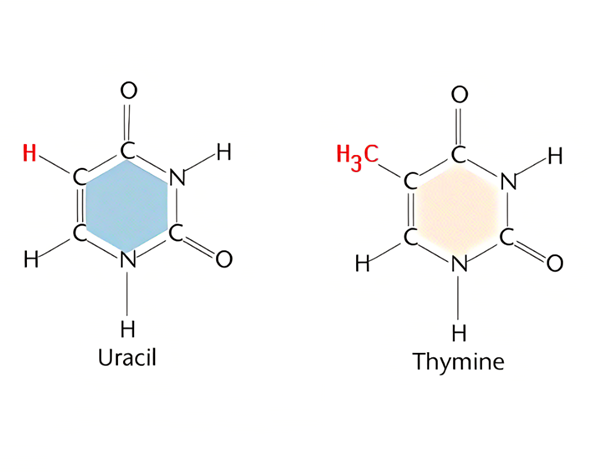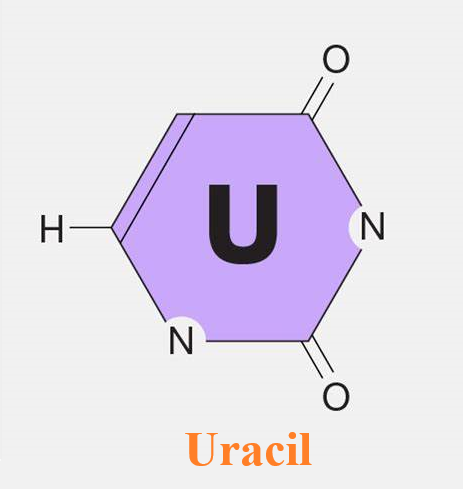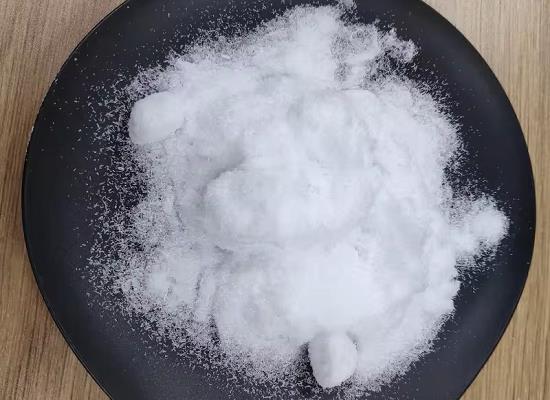Uracil: Different sources in DNA and Role in Adaptive Immunity
Uracil is one of the four nucleotide bases in the nucleic acid RNA. In RNA, uracil binds to adenine via two hydrogen bonds. In DNA, the uracil nucleobase is replaced by thymine (T).
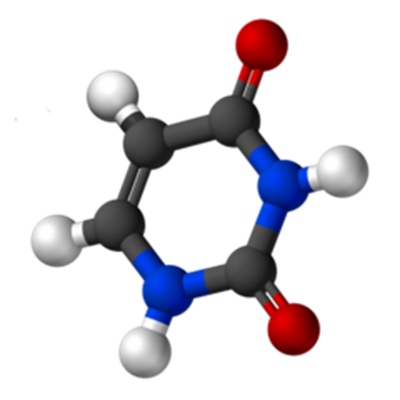
Uses
Uracil's use in the body is to help carry out the synthesis of many enzymes necessary for cell function through bonding with riboses and phosphates.Uracil serves as allosteric regulator and coenzyme for reactions in animals and in plants.
Uracil can be used for drug delivery and as a pharmaceutical. When elemental fluorine reacts with uracil, they produce 5-fluorouracil. 5-Fluorouracil is an anticancer drug (antimetabolite) used to masquerade as uracil during the nucleic acid replication process.
Different sources in DNA
Uracil existing in DNA may arise as a result of spontaneous deamination of cytosine (leading to U:G mispairing) or from incorporation of dUMP during replication in place of dTMP leading to U:A pairing. The U:A pairs are not directly mutagenic, however, they may be cytotoxic or even lead to mutations when uracil is recognized and removed by uracil-DNA glycosylases (UNG) and an abasic site is formed. There is no doubt that U:G pairs have mutagenic potential leading to C → T transition. Recent studies demonstrated that uracil is also introduced into immunoglobulin (Ig) encoding genes of B cells in a targeted manner by activation-induced cytidine deaminase (AID) . AID deaminates dC to dU in single stranded (ss) DNA in hot spot motifs during ongoing transcription at the sites of ss bubbles. The presence of uracil in Ig genes is involved in a mechanism of antibody diversification via somatic hypermutation (SHM) and is also associated with class switch recombination (CSR).[1]
Role in Adaptive Immunity
Uracil plays a crucial role in adaptive immunity through its involvement in the antibody diversification process. Eukaryotic and prokaryotic cells have developed mechanisms to prevent the presence of uracils in DNA due to the harmful effects of unrepaired genomic uracils. One such mechanism involves the action of dUTPase, an enzyme that regulates the intracellular pool of dUTP by converting it to dUMP, thereby maintaining genomic stability.
[1] Ryszard Olinski, Tomasz Zaremba, Marek Jurgowiak. “Uracil in DNA—Its biological significance.” Mutation Research-Reviews in Mutation Research 705 3 (2010): Pages 239-245.
References:
[1] RYSZARD OLINSKI T Z Marek Jurgowiak. Uracil in DNA—Its biological significance[J]. Mutation Research-Reviews in Mutation Research, 2010, 705 3: 163-268. DOI:10.1016/j.mrrev.2010.08.001.You may like
Related articles And Qustion
Lastest Price from Uracil manufacturers

US $0.00/kg2025-08-26
- CAS:
- 66-22-8
- Min. Order:
- 1kg
- Purity:
- 99%min
- Supply Ability:
- 20tons

US $0.00-0.00/kg2025-08-13
- CAS:
- 66-22-8
- Min. Order:
- 1kg
- Purity:
- 99%
- Supply Ability:
- 2000tons
